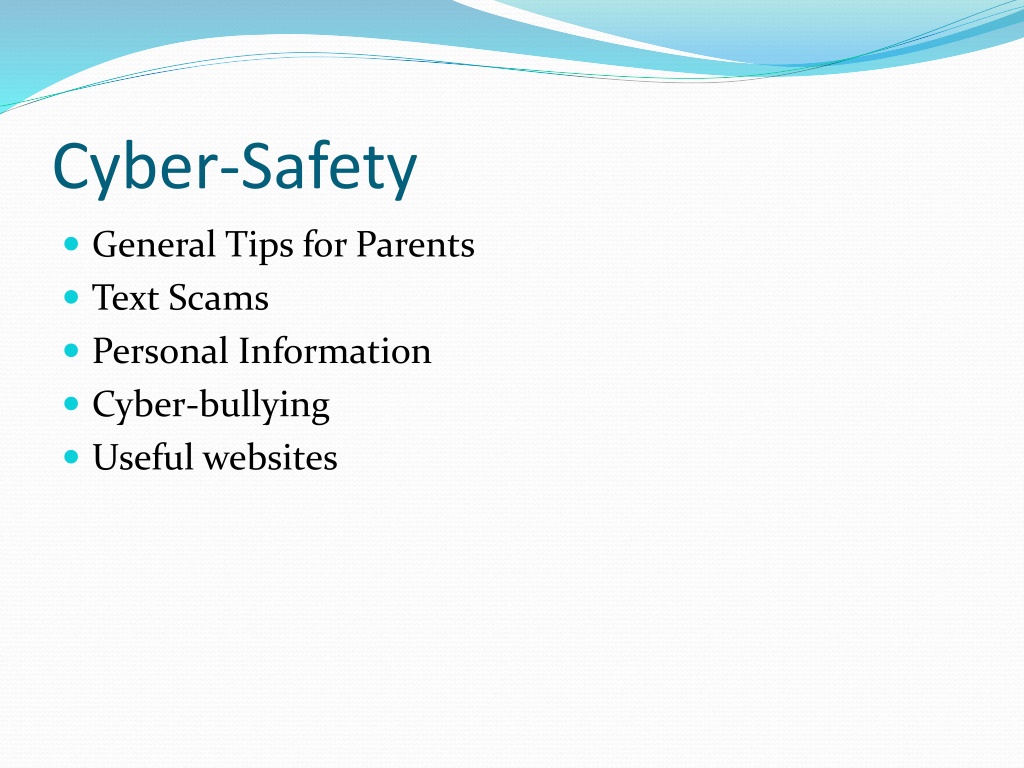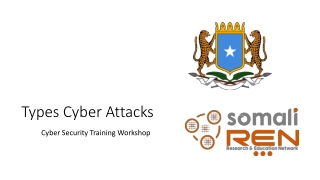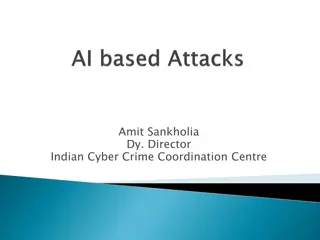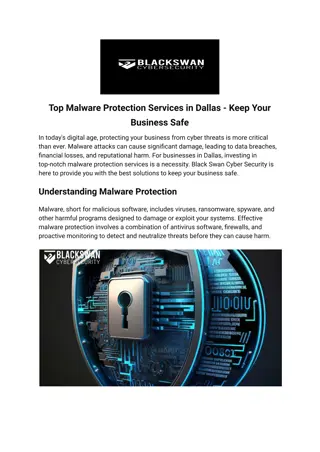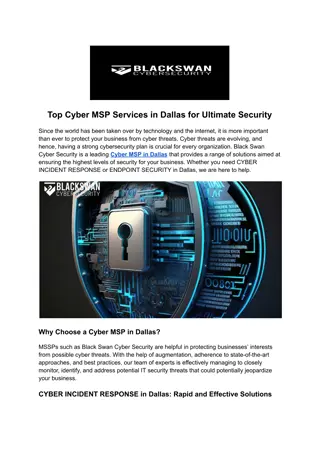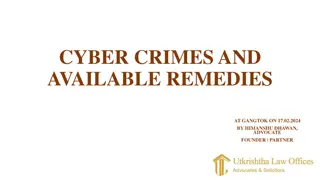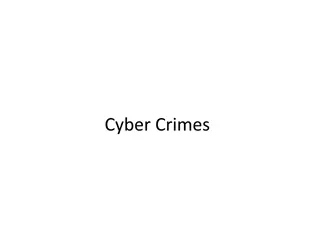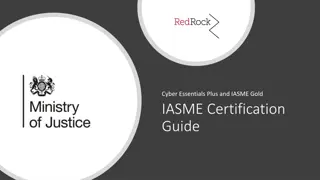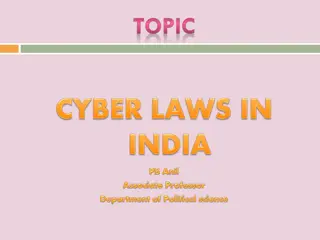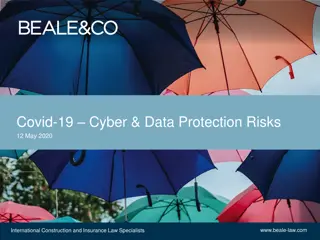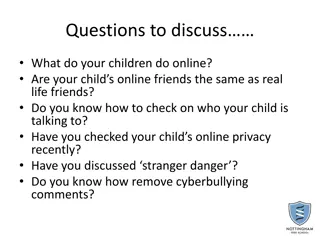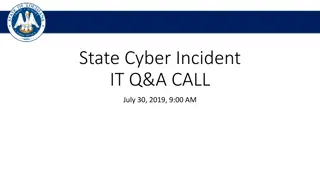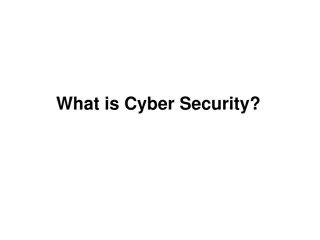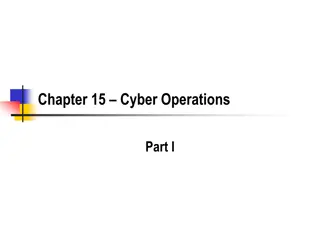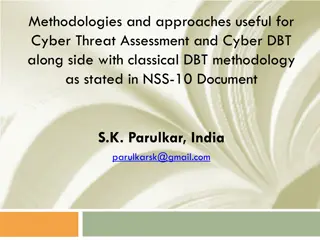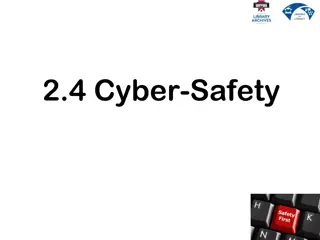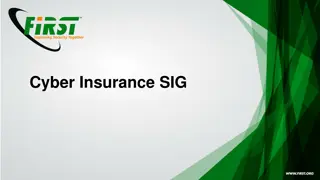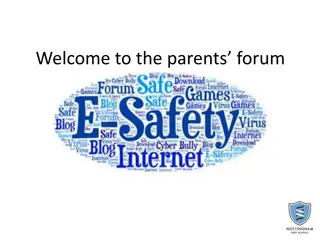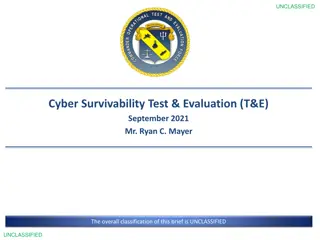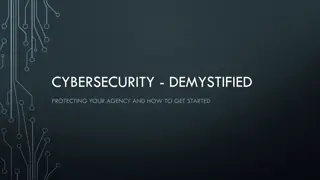Cyber Safety Tips for Parents: Protecting Your Child Online
Discover internet safety tips for parents to safeguard children from online dangers like scams, cyberbullying, and privacy breaches. Learn how to address text and email scams, navigate social networking websites, and decode online language used by kids. Empower yourself to foster a safe online environment for your child.
Download Presentation

Please find below an Image/Link to download the presentation.
The content on the website is provided AS IS for your information and personal use only. It may not be sold, licensed, or shared on other websites without obtaining consent from the author. Download presentation by click this link. If you encounter any issues during the download, it is possible that the publisher has removed the file from their server.
E N D
Presentation Transcript
Cyber-Safety General Tips for Parents Text Scams Personal Information Cyber-bullying Useful websites
GENERAL TIPS: Discover the Internet together Agree with your child on rules for internet use Know your child s internet use Encourage respect for others Keep the computer or laptop in a shared area of the house Encourage your child to be critical of information they see on-line
TEXT AND E-MAIL SCAMS Spam = Junk Mail, usually advertising a product Pop-ups Phishing = Misleading e-mails requesting personal information Premium rate service texts
First contact the premium rate service provider: often you can text STOP to a number provided to unsubscribe. Contact your mobile phone provider (Meteor, Vodaphone, etc.). If no satisfactory outcome, contact ComReg. They will investigate the company involved. You may have to make a complaint to the Office of the Data Protection Commissioner.
Facebook (no. of users expected to cross the one billion mark this year) Myspace Bebo Nimble Xanga Friendster Club Penguin Faceparty SOCIAL NETWORKING WEBSITES.
PERSONAL INFORMATION: SOCIAL NETWORKING WEBSITES E.G. FACEBOOK Your child should be careful about the personal information and photographs that they post on-line. Anyone can use it. Privacy is a difficult idea for young people to understand. No address or phone number. Go Private . Go to edit profile. Will limit the number of hits their page gets. Password: mixture of letters and numbers. Encourage your child to check what their friends are posting about them. Don t post anything embarrassing. Always log out/ sign out.
BREAK THE CODE! ^5 = high five S^, S UP = What s up? bbb = bye bye baby egbok = everything s gonna be okay POS = parent over shoulder lmirl = let s meet in real life f2f = face to face gl = good luck hand = have a nice day ilu, ily = I love you jj = just joking k, kk = okay, alright kiss = keep it simple, stupid l8r =later (goodbye) np = no problem
Friends arent always friends. If your child accepts friends of friends , suddenly a lot of people have access to their profile. Ideally your child should know any person that they accept as a friend. Adults can lie about their age and interests to gain a young person s trust. Tell your child to follow their instincts. Use a webcam only with known people. NEVER arrange to meet up without permission.
Bullying on-line, by mobile phones and on devices: Abusive messages Nasty comments posted on someone s profile Fake profiles Exclusion Personal humiliation
Dont reply to the messages Encourage your child to tell someone they trust Keep the messages you will need evidence Block the sender Many social networking websites and mobile phone operators allow you to report abuse Serious incidents that could be illegal should be reported to the garda or Hotline.ie
Useful organisations and websites. www.webwise.ie www.hotline.ie www.makeitsecure.ie www.saferinternet.org www.watchyourspace.ie www.askcomreg.ie HeadsupText: An automated 24-hour text service for young people which provides a list of helpline numbers and their opening hours. Freetext: headsup to 50424
